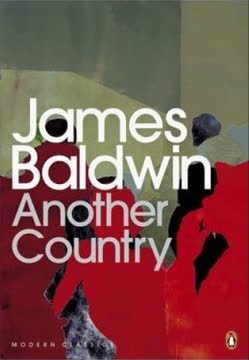Key Takeaways
1. The Black Experience in America: A History of Pain and Resilience
I know that one would rather not think so, but this young man is typical. So, on the basis of the evidence, had everyone else in the bar lost his conscience.
A legacy of suffering. The African American experience in the United States has been marked by centuries of oppression, violence, and systematic discrimination. From slavery to Jim Crow laws, and continuing through the Civil Rights era to the present day, Black Americans have faced:
- Physical brutality: lynchings, beatings, and police violence
- Economic exploitation: denial of fair wages, job discrimination, and wealth disparity
- Social degradation: segregation, racial slurs, and cultural erasure
- Psychological trauma: constant fear, internalized racism, and generational pain
Strength through adversity. Despite this harrowing history, African Americans have demonstrated remarkable resilience and cultural vitality. This strength has manifested in:
- Artistic expression: music (blues, jazz, hip-hop), literature, and visual arts
- Community solidarity: mutual aid societies, churches, and civil rights organizations
- Educational achievements: founding of HBCUs, academic excellence despite barriers
- Political activism: from abolitionists to Black Lives Matter
2. The Illusion of Progress: Tokenism and Persistent Racial Inequality
White Americans seem to feel that happy songs are happy and sad songs are sad, and that, God help us, is exactly the way most white Americans sing them—sounding, in both cases, so helplessly, defenselessly fatuous that one dare not speculate on the temperature of the deep freeze from which issue their brave and sexless little voices.
Superficial changes. While there have been notable advancements in civil rights and racial equality, many of these changes have been superficial or limited in scope. Tokenism – the practice of making only a perfunctory effort to be inclusive to minority groups – has often substituted for genuine systemic change.
Examples of persistent inequality:
- Economic disparities: wealth gap, employment discrimination, housing segregation
- Educational inequities: school funding disparities, achievement gaps, disciplinary biases
- Criminal justice system: disproportionate incarceration rates, police brutality, sentencing disparities
- Political representation: voter suppression, gerrymandering, underrepresentation in elected offices
The danger of complacency. The illusion of progress can lead to complacency among both white and Black Americans. This false sense of achievement can:
- Mask ongoing systemic racism and its effects
- Discourage further efforts for substantial change
- Allow for the perpetuation of harmful stereotypes and biases
3. The Power of Identity: Embracing Black Heritage and Culture
The paradox—and a fearful paradox it is—is that the American Negro can have no future anywhere, on any continent, as long as he is unwilling to accept his past.
Reclaiming heritage. For African Americans, embracing their cultural identity and history is a powerful act of self-affirmation and resistance against a society that has long sought to erase or denigrate their heritage.
Key aspects of this cultural reclamation:
- Celebration of African roots and traditions
- Preservation and promotion of Black art, music, and literature
- Emphasis on Black excellence and achievement
- Rejection of Eurocentric beauty standards and cultural norms
Identity as strength. A strong sense of cultural identity can provide:
- Psychological resilience in the face of ongoing discrimination
- A foundation for community solidarity and mutual support
- Inspiration for political and social activism
- A counternarrative to negative stereotypes and racist ideologies
However, this embrace of Black identity must be balanced with an understanding of the complexities of American society and the need for cross-cultural dialogue and understanding.
4. The Complexity of Integration: Challenging White Supremacy
It is the innocence which constitutes the crime.
The myth of innocence. Many white Americans cling to a narrative of innocence regarding racial issues, believing that they are not personally responsible for or benefiting from systemic racism. This "innocence" is, in fact, a form of willful ignorance that perpetuates racial inequality.
Manifestations of this "innocence":
- Colorblindness: claiming not to "see" race
- Denying the existence of systemic racism
- Focusing on individual acts of racism rather than structural issues
- Expecting gratitude from Black people for basic rights and opportunities
The challenge of true integration. Genuine integration requires more than merely allowing Black people into white spaces. It demands:
- Acknowledgment of historical injustices and their ongoing effects
- Willingness to confront and dismantle white privilege
- Restructuring of social, economic, and political systems to ensure equity
- Cultural exchange and mutual respect, rather than assimilation
This process is difficult and often uncomfortable for white Americans, as it challenges their sense of identity and place in society. However, it is necessary for the creation of a truly just and equitable nation.
5. The Role of Religion: From Christianity to the Nation of Islam
I heard myself saying this. Elijah smiled at me. "I don't, anyway," I said, finally, "think about it a great deal."
Christianity's complex legacy. Christianity has played a dual role in the African American experience:
- Source of hope and community: Black churches as centers of spiritual and social life
- Tool of oppression: Used to justify slavery and racial hierarchy
The limitations of traditional Christianity in addressing racial injustice have led some Black Americans to seek alternative spiritual paths.
The appeal of the Nation of Islam. The Nation of Islam offered:
- A theology that centered Black people and their experiences
- A strong message of self-reliance and Black empowerment
- A critique of white supremacy and American racism
However, the Nation of Islam's teachings also included problematic elements, such as:
- Reverse racism and anti-white rhetoric
- Separatist ideology that rejected integration
- Patriarchal structure and gender roles
The exploration of these different religious and spiritual paths reflects the ongoing search for meaning, identity, and empowerment within the Black community.
6. The Global Context: America's Race Problem on the World Stage
It is scarcely worthwhile to attempt remembering how many times the sun has looked down on the slaughter of the innocents.
America's tarnished image. The racial injustice in the United States has significant implications for its global standing and foreign policy:
- Hypocrisy in promoting democracy and human rights abroad
- Weakened moral authority in international affairs
- Vulnerability to criticism and propaganda from rival nations
- Strained relationships with African and other non-white nations
The Cold War context. During the Cold War, America's racial problems became a major liability:
- Soviet propaganda highlighted U.S. racial inequality
- Civil rights became a matter of national security
- Pressure to improve race relations to maintain global influence
Decolonization and global Black consciousness. The struggles of African Americans resonated with:
- Anti-colonial movements in Africa and Asia
- Global campaigns against apartheid in South Africa
- Pan-African solidarity movements
This global context underscores the interconnectedness of racial justice struggles worldwide and the importance of addressing America's racial issues for both domestic and international reasons.
7. The Path Forward: Confronting Reality and Embracing Change
I think that people can be better than that, and I know that people can be better than they are. We are capable of bearing a great burden, once we discover that the burden is reality and arrive where reality is.
Facing hard truths. Progress in racial justice requires confronting uncomfortable realities:
- The persistence of systemic racism in all aspects of society
- The deep-seated nature of racial biases and prejudices
- The inadequacy of past efforts at reform and reconciliation
- The interconnectedness of racial issues with other forms of social and economic inequality
Embracing transformative change. Meaningful progress demands:
- Radical restructuring of social, economic, and political systems
- Honest dialogue and education about race and racism
- Commitment to equity and justice at both individual and institutional levels
- Recognition of the shared humanity and interdependence of all people
The potential for growth. By confronting these challenges:
- America can live up to its ideals of freedom and equality
- Both Black and white Americans can be liberated from the burden of racial animosity
- A more just and equitable society can emerge, benefiting all citizens
- The nation can set an example for addressing racial and social justice globally
This path forward requires courage, commitment, and a willingness to engage in difficult but necessary work. It offers the possibility of creating a truly inclusive and equitable America that honors the experiences and contributions of all its people.
Last updated:
FAQ
What's "The Fire Next Time" about?
- Two Essays: "The Fire Next Time" by James Baldwin consists of two essays: "My Dungeon Shook" and "Down at the Cross." Both explore themes of race, identity, and religion in America.
- Racial Injustice: The book delves into the systemic racial injustices faced by African Americans, highlighting the historical and ongoing struggles for equality.
- Personal and Political: Baldwin combines personal narrative with political commentary, offering a deeply personal perspective on the broader social issues of his time.
- Call for Change: The book is a call to action, urging both black and white Americans to confront and change the racial dynamics in the United States.
Why should I read "The Fire Next Time"?
- Insightful Perspective: Baldwin provides a profound and insightful perspective on race relations in America, making it a crucial read for understanding the historical context of racial issues.
- Literary Mastery: The book is a testament to Baldwin's literary prowess, with eloquent prose and powerful arguments that resonate with readers.
- Relevance Today: Despite being published in 1963, the themes and issues Baldwin addresses remain relevant in today's discussions on race and equality.
- Emotional Impact: Baldwin's personal experiences and emotional depth make the book a compelling and moving read.
What are the key takeaways of "The Fire Next Time"?
- Racial Inequality: The book highlights the pervasive racial inequality in America and the need for systemic change.
- Power of Love: Baldwin emphasizes the importance of love and understanding in overcoming racial divides and achieving true integration.
- Religious Critique: He critiques organized religion, particularly Christianity, for its role in perpetuating racial oppression.
- Personal Responsibility: Baldwin calls for personal responsibility in confronting and addressing racial issues, urging individuals to act with courage and integrity.
What are the best quotes from "The Fire Next Time" and what do they mean?
- "God gave Noah the rainbow sign, No more water, the fire next time!" This quote, from a spiritual song, symbolizes the impending judgment and need for change in racial relations.
- "You can only be destroyed by believing that you really are what the white world calls a nigger." Baldwin warns against internalizing racial stereotypes and emphasizes self-worth.
- "The really terrible thing, old buddy, is that you must accept them." This highlights the necessity of accepting white people with love, despite their historical wrongdoings, to foster change.
- "If we do not now dare everything, the fulfillment of that prophecy...is upon us." Baldwin stresses the urgency of taking bold action to prevent racial catastrophe.
How does Baldwin address religion in "The Fire Next Time"?
- Religious Crisis: Baldwin recounts his own religious crisis, questioning the role of Christianity in his life and its impact on African Americans.
- Critique of Christianity: He criticizes Christianity for its complicity in racial oppression and its failure to address the needs of black people.
- Islam and Black Identity: Baldwin explores the appeal of Islam to African Americans, particularly through the Nation of Islam, as a means of reclaiming identity and dignity.
- Spiritual Reflection: The book reflects on the spiritual journey of African Americans and the search for a faith that aligns with their experiences and aspirations.
What is the significance of the title "The Fire Next Time"?
- Biblical Reference: The title references a biblical prophecy of destruction by fire, symbolizing the potential for racial upheaval if change does not occur.
- Warning and Urgency: It serves as a warning of the consequences of ignoring racial injustice and the urgent need for action.
- Historical Context: The title reflects the historical context of the civil rights movement and the growing demand for equality and justice.
- Metaphor for Change: Fire is used metaphorically to represent both destruction and the possibility of renewal and transformation.
How does Baldwin's personal experience shape "The Fire Next Time"?
- Autobiographical Elements: Baldwin draws on his own experiences growing up in Harlem, providing a personal lens through which to view broader social issues.
- Family Dynamics: His relationship with his father and nephew offers insight into the generational impact of racism and the struggle for identity.
- Religious Journey: Baldwin's religious journey, from preacher to skeptic, informs his critique of organized religion and its role in racial dynamics.
- Emotional Depth: His personal narrative adds emotional depth and authenticity to the book, making the issues more relatable and impactful.
What role does love play in "The Fire Next Time"?
- Central Theme: Love is a central theme, seen as a powerful force for overcoming racial hatred and fostering understanding.
- Transformative Power: Baldwin argues that love has the power to transform individuals and society, bridging racial divides.
- Acceptance and Forgiveness: He emphasizes the need for acceptance and forgiveness, even towards those who have perpetuated racial injustice.
- Personal Responsibility: Love is tied to personal responsibility, urging individuals to act with compassion and integrity in the face of racial challenges.
How does Baldwin view the future of race relations in America?
- Cautious Optimism: Baldwin expresses cautious optimism, believing in the potential for change but acknowledging the challenges ahead.
- Call to Action: He calls for immediate and bold action to address racial inequality, warning of dire consequences if ignored.
- Integration vs. Separation: Baldwin advocates for true integration, rejecting both the status quo and the idea of racial separation.
- Vision for America: He envisions an America where racial equality is achieved through mutual understanding and shared humanity.
What is Baldwin's critique of the Nation of Islam in "The Fire Next Time"?
- Understanding Appeal: Baldwin acknowledges the appeal of the Nation of Islam to African Americans seeking identity and empowerment.
- Critique of Separatism: He critiques the movement's separatist ideology, arguing that it ultimately mirrors the racism it opposes.
- Complex Relationship: Baldwin's relationship with the Nation of Islam is complex, recognizing its role in addressing black suffering while questioning its methods.
- Hope for Unity: Despite his critique, Baldwin hopes for a future where black and white Americans can unite in a shared struggle for justice.
How does Baldwin address the concept of identity in "The Fire Next Time"?
- Struggle for Identity: Baldwin explores the struggle for identity among African Americans, shaped by historical and social forces.
- Rejection of Labels: He rejects simplistic racial labels, advocating for a more nuanced understanding of identity beyond black and white.
- Personal and Collective: Identity is both personal and collective, influenced by individual experiences and the broader racial context.
- Empowerment through Identity: Baldwin sees the reclamation of identity as empowering, enabling African Americans to challenge stereotypes and assert their humanity.
What impact did "The Fire Next Time" have on the civil rights movement?
- Galvanizing Force: The book galvanized the civil rights movement, providing a passionate and articulate voice for racial justice.
- Influence on Leaders: It influenced civil rights leaders and activists, offering a powerful critique of racial inequality and a vision for change.
- Public Awareness: Baldwin's work raised public awareness of racial issues, reaching a wide audience and sparking important conversations.
- Enduring Legacy: The book's impact endures, continuing to inspire and inform discussions on race and equality in America today.
Review Summary
The Fire Next Time is a powerful, eloquent exploration of race relations in 1960s America. Readers praise Baldwin's insightful commentary on racism, religion, and the human condition. The book's two essays offer a scathing critique of white supremacy while advocating for love and understanding. Many reviewers note the work's continued relevance today, emphasizing its importance as essential reading. Baldwin's prose is described as poetic, passionate, and deeply moving, leaving a lasting impact on readers and inspiring them to confront racial injustice.
Similar Books
Download PDF
Download EPUB
.epub digital book format is ideal for reading ebooks on phones, tablets, and e-readers.














